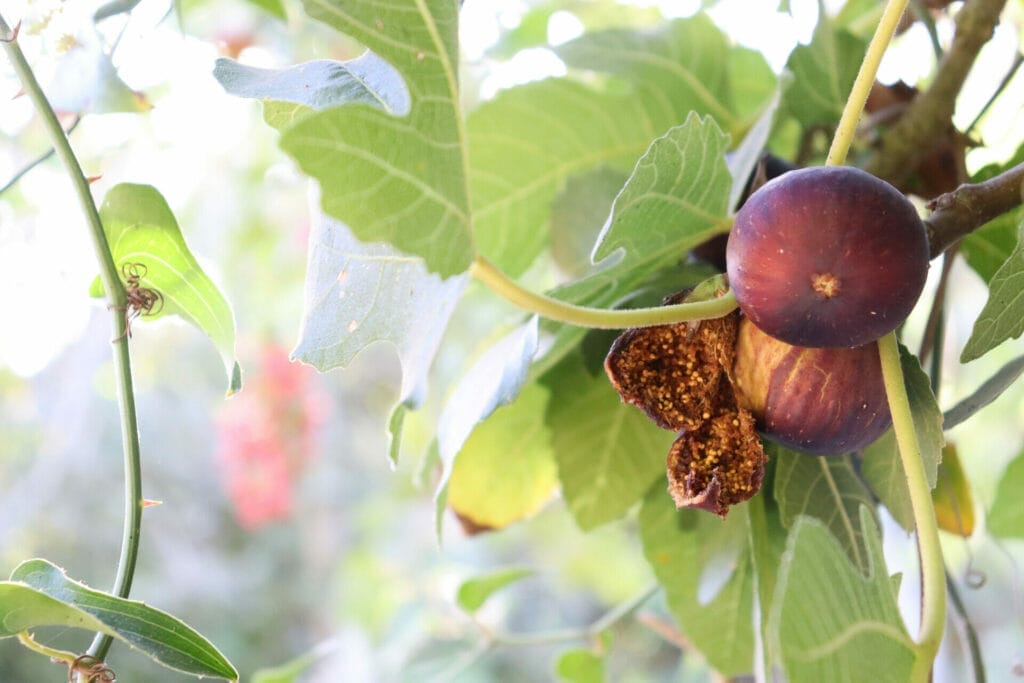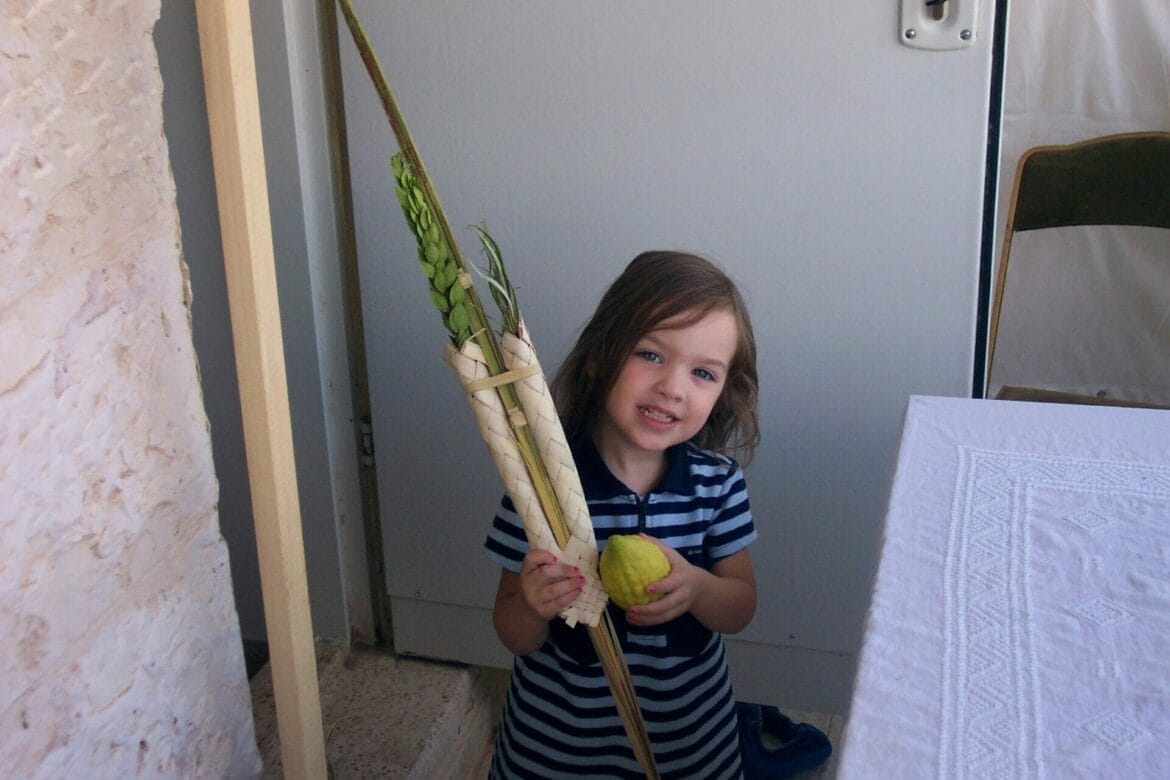
This short excerpt from my new book, From Southerner to Settler: Unexpected Lessons from the Land of Israel, is particularly relevant at this time of year. It was super fun to look through old pictures to find the right ones for this post! That’s my daughter Elie, now 23, on our first Sukkot in Israel.
Once Yom Kippur had passed, rejoicing over God’s forgiveness of the nation commenced – in the form of loud banging. As if everyone had tuned in to a new national rhythm, huts for the festival of Sukkot started to go up everywhere, hammers announcing the new change in pace. Sukkot is so important that all religious Israelis consider the size of the “Sukka mirpeset” (balcony) when purchasing or renting an apartment – despite the fact that it’s only relevant for one week of the entire year. Every resident of our neighborhood built their very own Sukkah, whether they had to squeeze it onto the teeniest apartment balcony or could construct an elaborate home away from home in their sprawling garden.
In our first apartment in Israel, our balcony was located off of our master bedroom. Our sukkah mirpeset wasn’t tiny – it was miniscule. Still, it was the first time we had an opportunity to build our own Sukkah in four years of our short married life – our apartment in New Jersey had had no outdoor space at all for Sukkah building. Before we moved to Israel, Sukkot for us had involved visiting our parents, or searching for public sukkot to eat in. During the week, we would huddle in the cold on folding chairs and share sandwiches near other displaced Jews in Teaneck or Manhattan. After years of marriage during which we never had a Sukkah at all, our own tiny little Sukkah off our bedroom in Israel was tremendously exciting.
My husband planned it all out down to the last, minute detail. Then he drove to one of the many Sukkah pop up shops around town, consulted his plans, and picked out the requisite wood, cloth, nails, schach (roofing made of completely natural material, as required by halacha), and lots of tinsel (his family tradition). He knocked the Sukkah together over the course of a couple of days, only risking his life a few times as he dangled precariously from our fourth-floor balcony. I steered totally clear of this exercise at tempting fate, preferring that our small children not get any wild ideas about what constituted proper balcony-safety protocol. But when the banging stopped, there it was! We had our first little Sukkah in Israel.
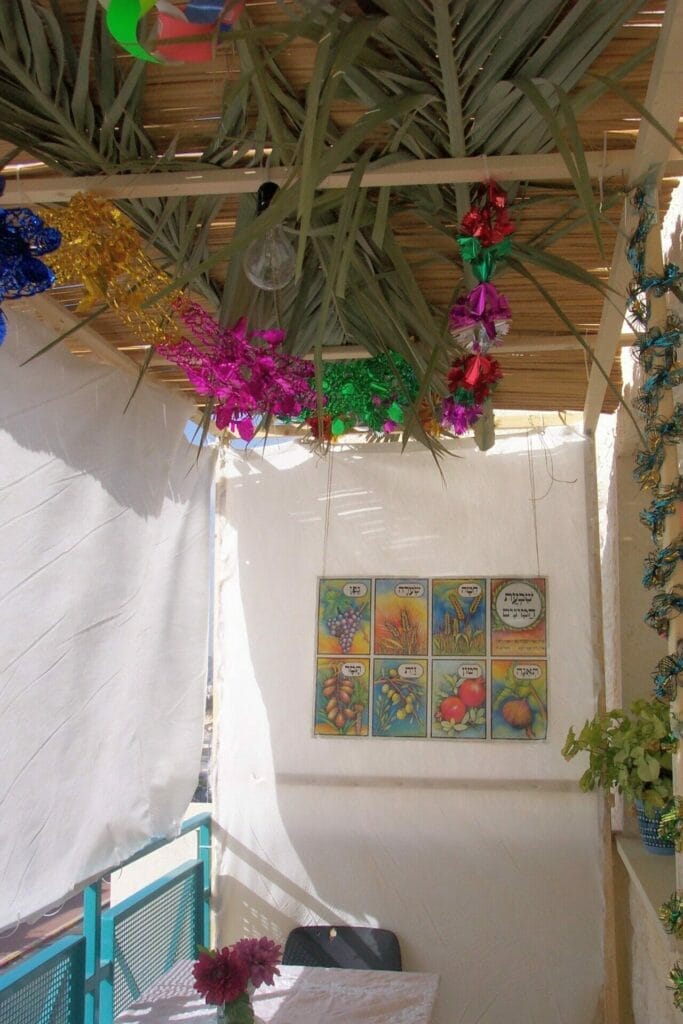
I felt an abundance of pride. I was proud that my family could experience the holiday of Sukkot the way that Jews were meant to – with our very own sukkah. My eyes teared up as we put the finishing touches on the Sukkah, stapling our three-year-old’s pictures to the wall. Nostalgia washed over me -my mother had performed this same ritual when I was a little girl.
Once the holiday began, we seized every opportunity to head into the Sukkah, occasionally pulling back the curtains to watch the neighborhood action. There were lots of people to look at on that holiday – not only families walking in the streets, but friends in their sukkot in nearby buildings. During the days leading up to the holiday, we had paid special attention to our downstairs neighbors as they constructed their Sukkah, looking down on them every morning and night. Their teenage girls had made adorning the Sukkah walls with decorations a daily activity, laughing and talking all the while, a picture-perfect scene of family life. Now they were hosting loud nightly gatherings in their beautiful, temporary outdoor home. We loved to peek down at their fun: Would our family be as cute and cohesive as theirs one day?
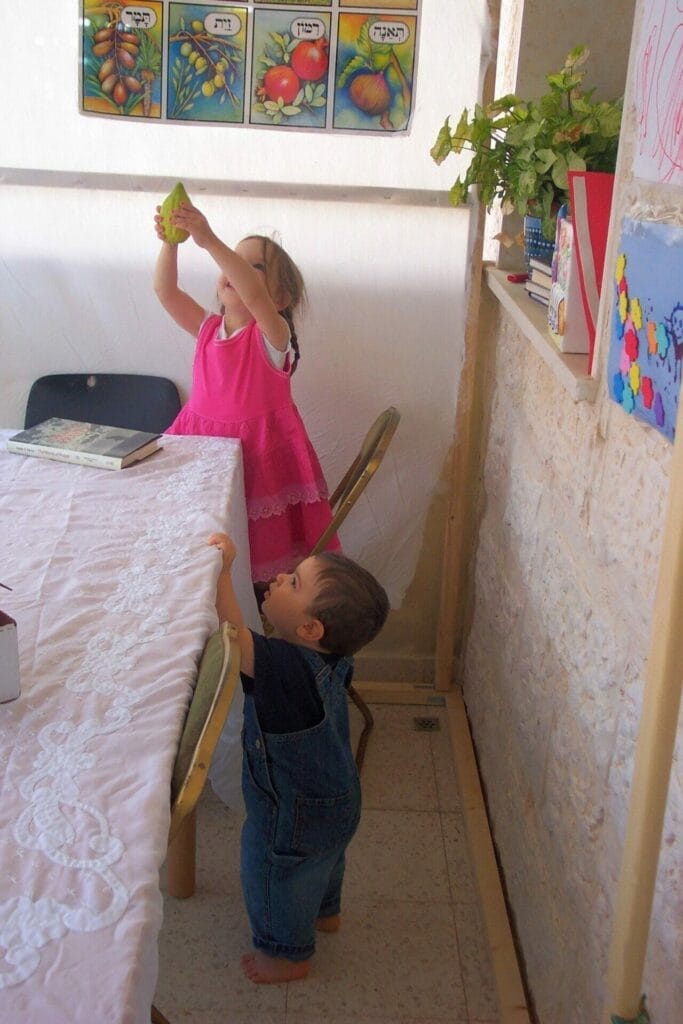
Throughout the holiday, we dined outside for breakfast, lunch, and dinner. We sat with our children at our tiny table, eating bakery bread or rugelach, watching the sun’s rays filter through our white curtain walls. Sometimes we pulled the curtains back to let in the breeze. We felt like we were living in the lap of luxury: it felt unfairly amazing to be able to eat a meal whenever we wanted to; no crowded communal Sukkahs for us. The gorgeous weather every single day made it feel even more like a picture-perfect scene out of a storybook.
Beyond our sukkah, the daily holiday scene unfolded around us, the whole town celebrating together. Each night, we would hear music pouring forth from Simchat Beit HaShoeva parties. Each day, we went on excursions with friends to explore the country. Our friends took us to Neot Kedumim, a biblical landscape reserve that featured a series of different types of sukkot as described in the Mishna. We went to the beach. We went hiking, my husband and I beginning to discover the beautiful local trails in the Jerusalem mountains.
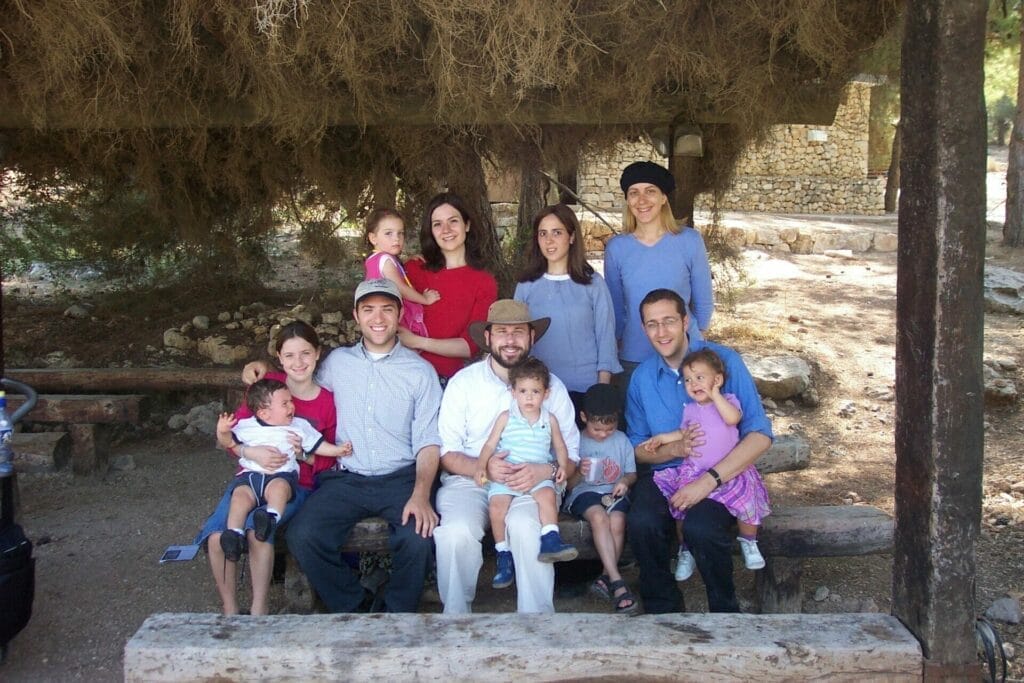
As we set out each morning, we watched our neighbors pack up their cars for their own days out. We found ourselves completely immersed in Sukkot in a way that we never had been before. Just maybe, we thought, this one small transformation made the process of moving to Israel entirely worth it. Our kids would be growing up in a place where their holidays were the country’s holidays! Our kids would be able to celebrate their holy days without having to miss work or school! How was it going to feel for them, to see that their nation’s values were the same as their own? Would they truly never experience that awkward moment: when they had to explain their weird hut holiday to classmates or co-workers? I could hardly even imagine a childhood without this strange dissonance. What would life be like for my children, now Israeli, growing up in a land where they totally and completely fit in?
For the first time in my life, there was no cause to feel strange or different as the Jewish holidays rolled around- in fact, just the opposite. Experiencing our first series of chagim in Israel as Israelis, we truly felt a part of something great: our inner and outer lives, for the first time, fit perfectly together.
Read the full story!
From Southerner to Settler: Unexpected Lessons from the Land of Israel is now available to order online in Israel and on Amazon.com around the world.
